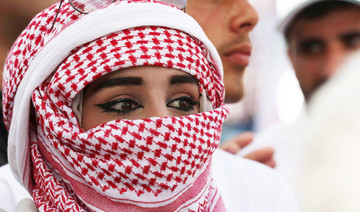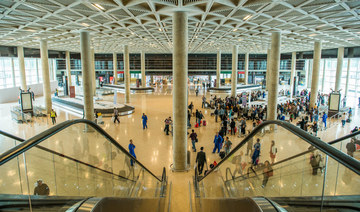AMMAN: Jordan is moving to hold elections for the House of Representatives, according to a Royal Court statement issued on Wednesday.
Ali Khawaldeh, director-general of the Ministry of Political and Parliamentary Affairs, told Arab News the elections will likely take place on Nov. 10. The Independent Election Commission is expected to recommend a date for the elections in the coming days.
Amer Bani Amer, director-general of Rased, a Jordanian NGO that monitors elections and government activities, told Arab News the current political atmosphere is ripe for a different kind of parliament.
“The robust governmental anti-corruption activities, as well as effective anti-COVID-19 policies, mean that Jordanians are likely to elect a different kind of parliament,” he said.
Amer said the effectiveness and success of a younger parliament will encourage the majority of Jordanians, who are young, to vote for younger candidates.
Samar Muhareb, CEO of the Arab Renaissance for Democracy and Development Society, told Arab News that events in Jordan make her pessimistic about the state of democracy in the country.
“Democracy is not only elections, it is the rule of law, freedom of expression and assembly, separation of powers, and an independent judiciary and robust civil society. The crackdown on the teachers’ union, and the absence of freedom of unions and expression doesn’t bode well for democratic change,” Muhareb said.
She expressed concern that money will continue to play a role in elections, with the wealthy entering parliament regardless of their abilities. Muhareb added that the role of civil society in Jordan needs to be evaluated.
“They make a cosmetic intervention at the time of elections without real involvement in building a democratic and inclusive society that is ready to make real change,” she said.
Rami Adwan, who promotes political participation among women and youth, told Arab News that many young political activists think the space for civil society is narrowing.
“At present I am not optimistic that elections could produce a different parliament unless the youth realize that they must act to change those who will be in charge of setting their future,” he said.
Musa Shteiwi, a professor of sociology at Jordan University, told Arab News that the decision to hold elections on time is important.
“The decision of His Majesty to hold elections on time sends a positive message internally and externally that Jordan is stable,” he said. He added that despite the Independent Election Commission restoring trust to the electoral process, Jordan’s weak party system means a strong parliament is unlikely.
Layla Nafaa, a veteran women’s rights activist, told Arab News that efforts to increase the women’s quota from 12 to 17 percent have failed.
“Our only hope for more women in parliament now is for more women to run for office and for women and men to be more involved in the electoral process and choose women, rather than follow tradition and other reasons to choose men,” she said.



























